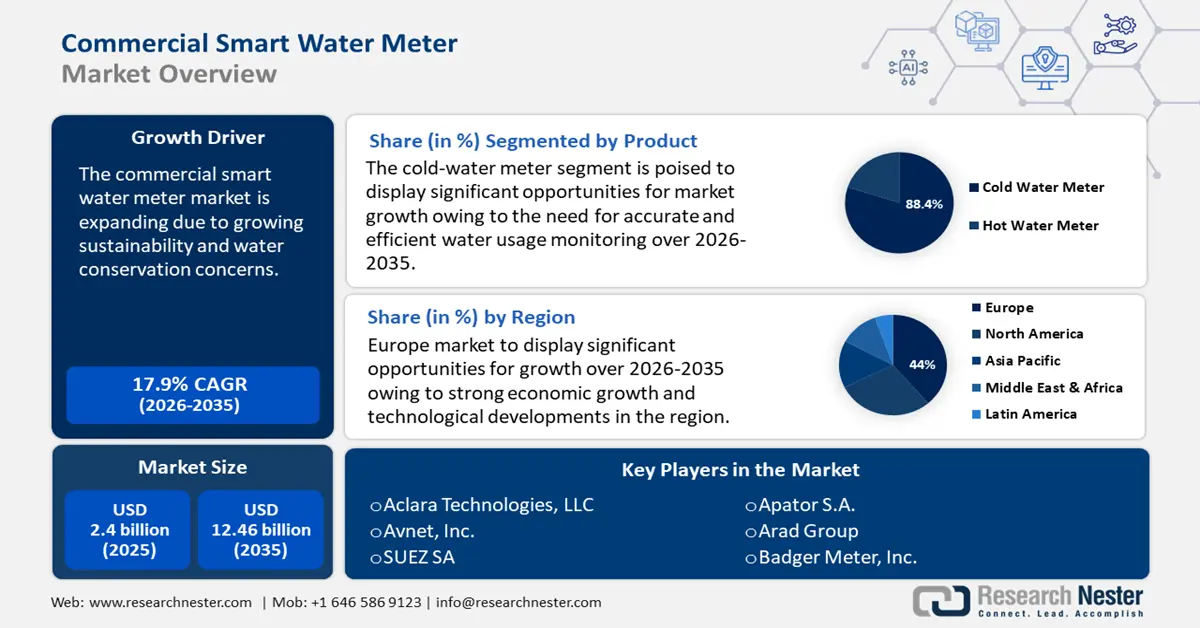Commercial Smart Water Meter Market Outlook:
Commercial Smart Water Meter Market size was valued at USD 2.4 billion in 2025 and is expected to reach USD 12.46 billion by 2035, registering around 17.9% CAGR during the forecast period i.e., between 2026-2035. In the year 2026, the industry size of commercial smart water meter is assessed at USD 2.79 billion.
The commercial smart water meter market is expanding due to growing sustainability and water scarcity concerns. According to the UN Environment Program, 4 billion people, or at least half of the world's population, struggle with water shortages at least once a year. It is anticipated that 1.8 billion people will experience water scarcity by 2025. Smart meters help monitor real-time data on consumption, leaks, and inefficiencies, promoting more efficient water use in commercial settings. Furthermore, smart meters are now more precise, dependable, and economical due to technological improvements, which makes them a desirable investment for companies looking to lower operating expenses and enhance resource management.
Smart water meters help utilities and commercial entities reduce non-revenue water (NRW), which refers to water that is produced but not billed due to leaks, theft, or inaccurate meters. Real-time monitoring allows for better detection and reduction of water loss. Moreover, commercial customers benefit from accurate billing through smart water meters, ensuring that they are charged based on actual consumption rather than estimates. This eliminates disputes and helps utilities optimize revenue.


